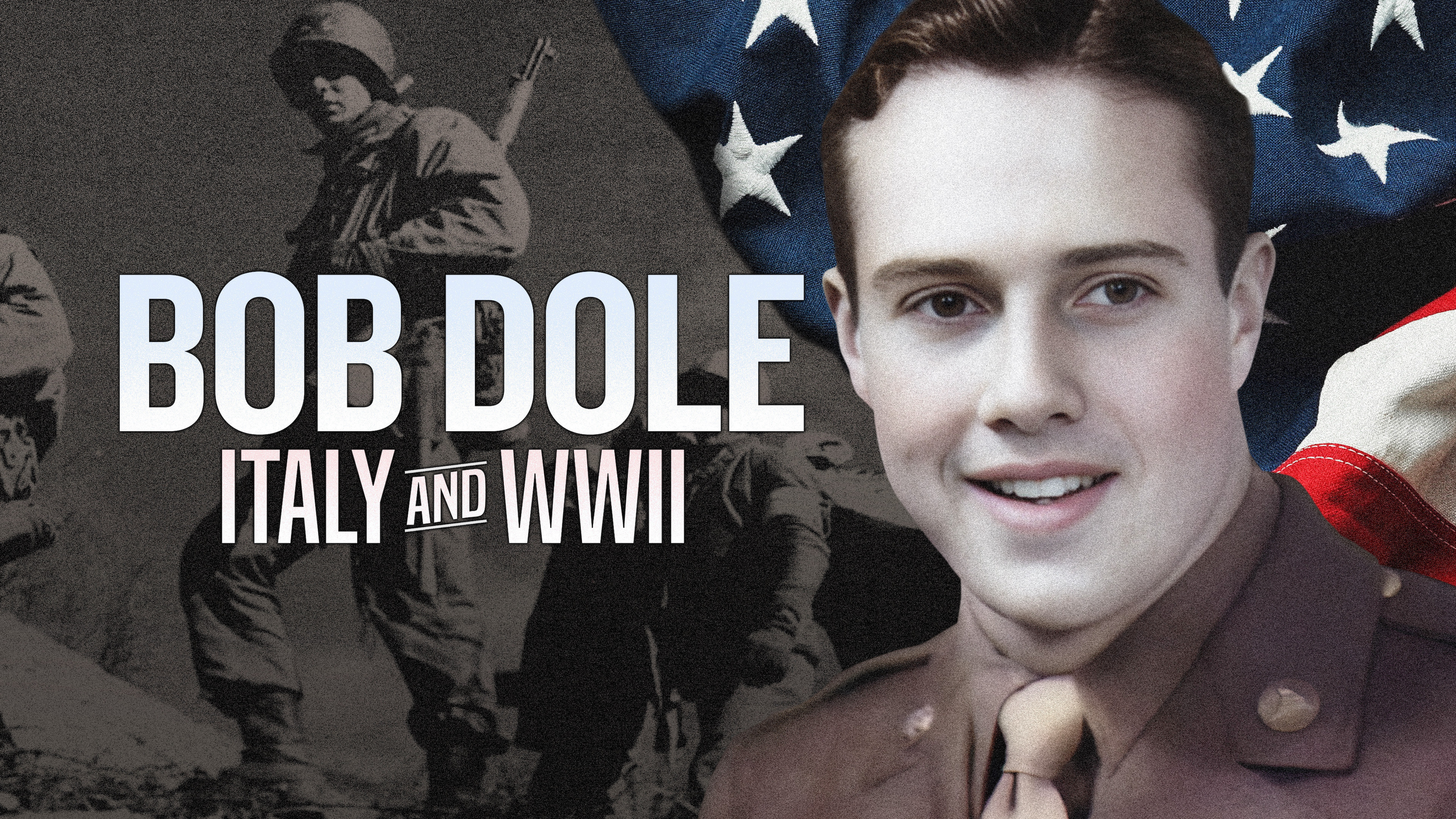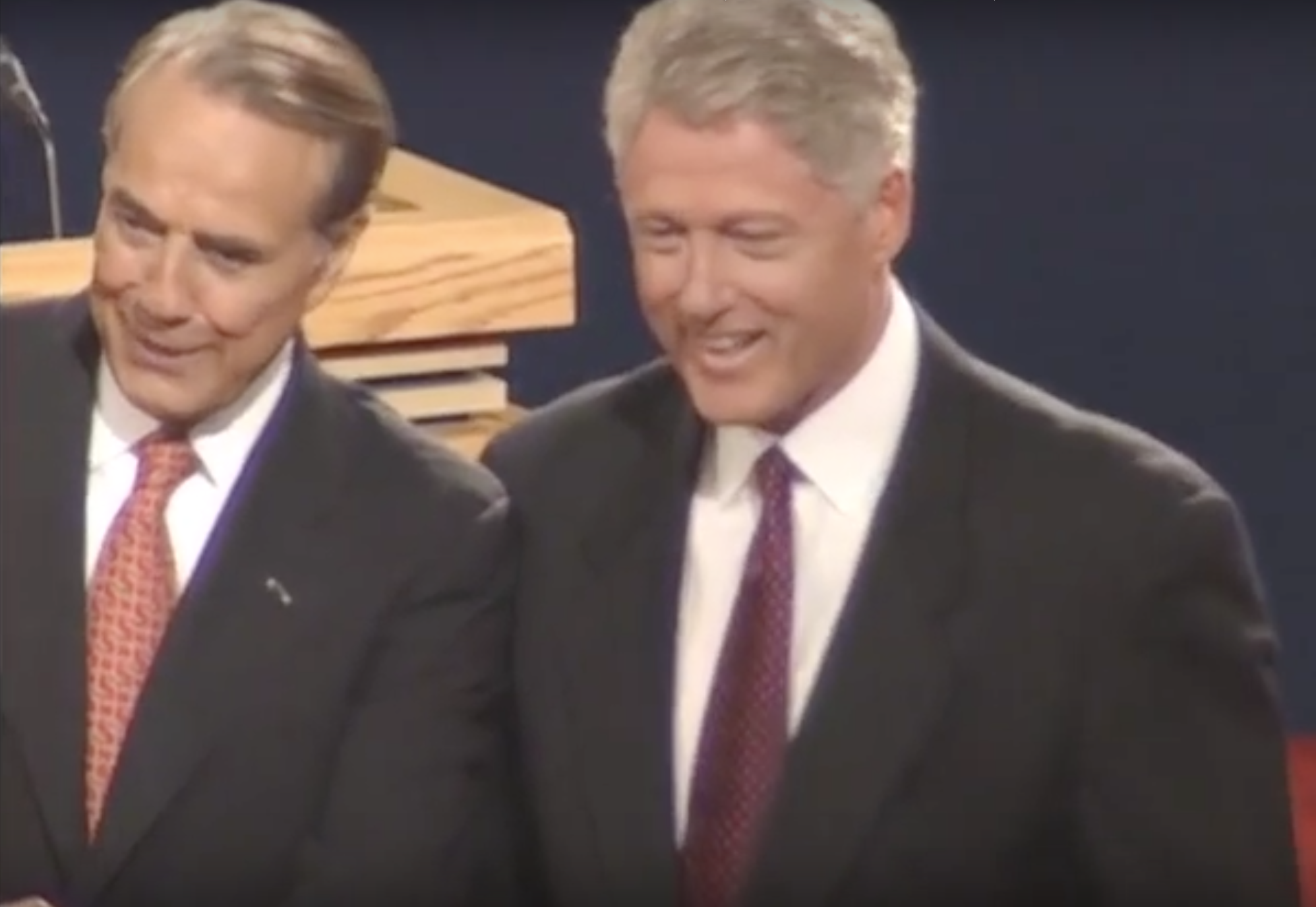No one would have dared to belittle Bob Dole’s courage or service.
◊
Early on the morning of April 14, 1945, Second Lieutenant Bob Dole and his platoon of the U.S. Army’s vaunted 10th Mountain Regiment hunkered down in some woods near the base of Monte della Spe in the northern Apennines of Italy. Their objective was Hill 913, a German stronghold on the other side of a mostly treeless valley several hundred yards across. The hill had been bombarded the night before, and Dole and his men were fairly confident most of the enemy troops had been killed. It appeared that taking the hill would be a “cake walk,” as Dole recalled decades later.
Dole, only 21 at the time, was an athletic young man from the small town of Russell, Kansas. He was fleet afoot and had competed in track events at the University of Kansas before he enlisted in the Army. But you can’t outrun bullets or whizzing shrapnel, as Dole had learned the hard way when a grenade fragment caught him in the leg a few weeks before. Nothing too serious, but instructive.
The platoon broke cover to begin their assault on Hill 913, and suddenly they were taking enemy fire. The Germans, or at least enough of them to wreak havoc, had survived the bombardment and were intent on holding the high ground. Only a few minutes into the American attack, the platoon’s radio man was shot. Dole rushed to pull his comrade to a safer position in a shallow ravine, and then the young Kansan’s luck ran out. A bullet tore through his right shoulder, wounding him seriously, almost fatally, and changing his life’s trajectory once and for all.

Coming September 5 to MagellanTV.
Dole’s New Normal Was Political Public Service
I’d probably read or heard about the fateful events of that long-ago spring morning when Senator Bob Dole was running for president of the United States in 1996. But when I recently watched a screener for MagellanTV’s excellent new documentary Bob Dole, Italy and World War II (coming September 5), the harrowing story seemed fresh and, perhaps, particularly relevant during this year’s presidential election campaign.
Why relevant? Because respect for the military service of candidates for high office appears to have gone by the wayside – at least insofar as some political candidates and their handlers are concerned. In 1996, it was inconceivable that President Bill Clinton, who was not a veteran, would have questioned or dismissed the service and sacrifice of Bob Dole in World War II, or of his valor, for which he was awarded a Bronze Star with a V, on that bloody hill in Italy. Today, Dole’s story, so movingly told by narrator Jim Nantz and others in the documentary, might have become the target of nitpicking “opposition research” or “swift boating.”
 Senator Bob Dole (left) and President Bill Clinton pose before cameras following the first Presidential Debate on October 6, 1996. (Source: Clinton Presidential Library, via Wikimedia Commons)
Senator Bob Dole (left) and President Bill Clinton pose before cameras following the first Presidential Debate on October 6, 1996. (Source: Clinton Presidential Library, via Wikimedia Commons)
After being shot, Bob Dole was temporarily paralyzed from the neck down. He never regained use of his right arm, and permanently lost perception in his left hand (with which he nevertheless learned to write). He was moved from one hospital to another for two years. At one of them, in Battle Creek, Michigan, he met a fellow vet who had been gravely wounded in Italy around the same time that Dole was. They became close friends for the rest of their lives. Both had to adjust to a new normal, and both went into politics. Dole was elected as a Republican senator from Kansas, and Daniel Inouye became a Democratic senator from Hawai’i.
As Nantz intones in Bob Dole, Italy and World War II, “There are no political parties in foxholes.”
Ω
Arthur M. Marx is Lead Editor at MagellanTV. He was formerly a senior writer/editor at Harvard University's Kennedy School of Government.

